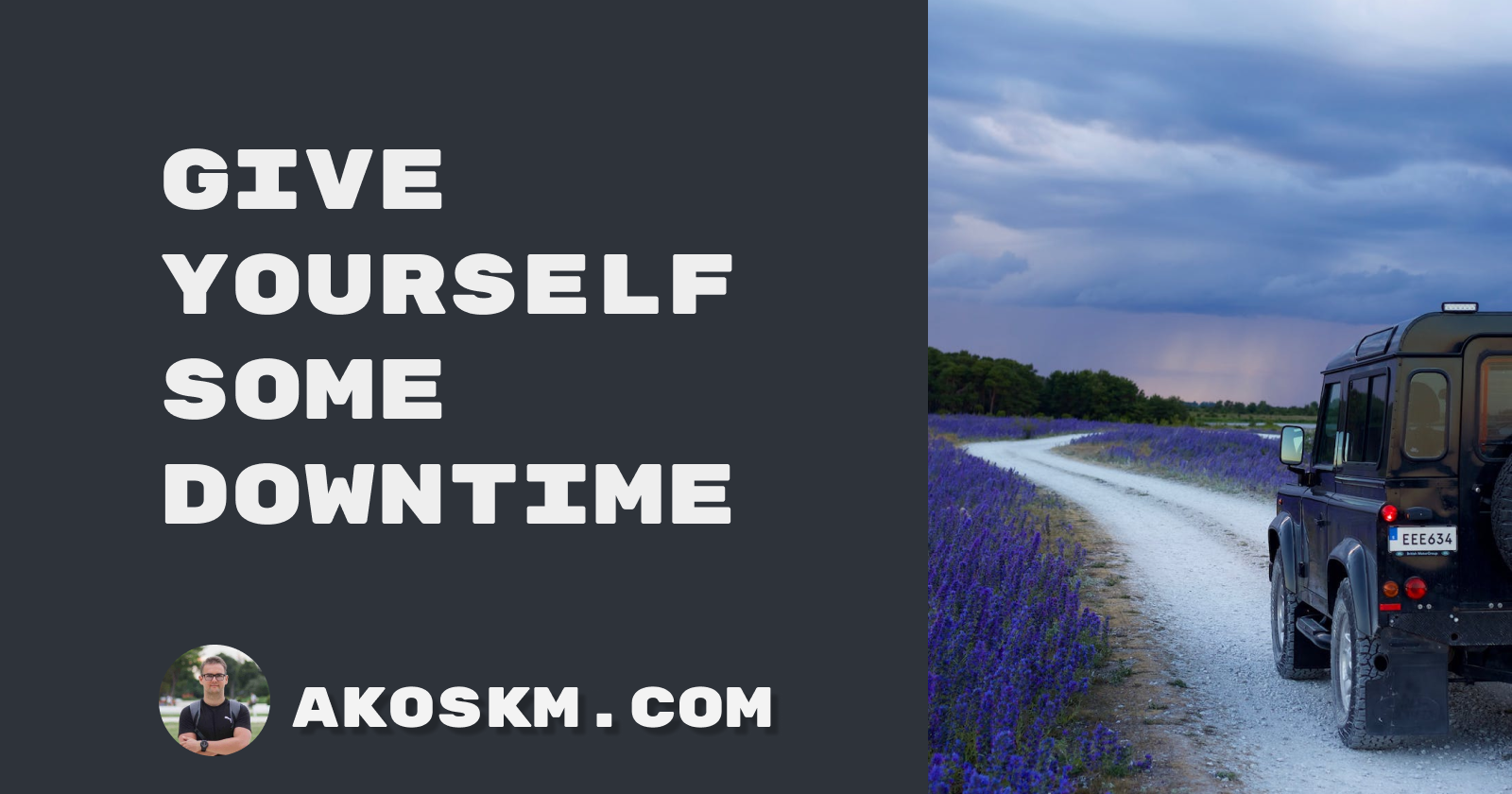There is something equally good and bad in doing the same things over and over.
When something becomes a routine, it is so engraved that you do it without much thinking.
This blog post is not your ”make sure you get up and walk around for 5 minutes” type of break stuff. I'll discuss extended breaks when you stop doing an activity for weeks or months.
Consider this: when washing your teeth, making breakfast, lacing a shoe, or lifting weights, there is little thinking. Imagine, every time you wash your teeth, first, you would examine your toothbrush and see if it's yours - then read the declaration and the how-to on the toothpaste. Recipe to miss the first meeting of the day!
But also, when things become part of our day-to-day lives, we take them for granted.
When people take something for granted, they undervalue it, assuming it will always be available or remain the same without effort or acknowledgment. This could be related to relationships, possessions, opportunities, health, or other aspects of life.
But can one fully value the situation one fought for without returning to square one and starting again?
The answer is: Breaks!
Breaks are controlled deprivations.
Breaks remind us how it was before we had that thing.
I've been taking a break from social media and writing for almost three months. Here's how this helped me to care less, be more aware of my goals, and focus on what matters the most in the long term.
Instant gratification
Some activities feel good right away, especially if they give quick rewards. The quicker the prize, the more we want to do the thing again.
That's why it's tough to keep exercising and building muscle, which takes time and can be uncomfortable and painful. On the other hand, sugary foods can elevate mood by rapidly increasing blood sugar, stimulating the release of serotonin and endorphins, activating the brain's reward system through dopamine, and evoking positive memories and feelings of comfort. This is all good, but we all know feeling good is not the only reward for eating sugar.
It almost seems we must pick the reward in advance and reverse engineer our way to it. Want to be recognized for your writing skills and have a successful blog? The activity you should be doing is writing consistently. Not sporadically, a bit on one platform, then on another. Tweeting a bit, then dabbling with a newsletter.
As soon as you change your activity, the rewards you can expect might change radically. You have to focus on how your actions are rewarded and if those rewards are really what you want.
Scaling down
The same thing can be said about devoting too much time to Twitter in exchange for likes but not building up that media business of truly involved people like you wanted to. Instead, most people who engage with you also want to build their media empires.
I started scaling down earlier this year by taking a week, then a month, then months off from Twitter.
This helped me realize that Twitter had an inproportionately small contribution to the quality of life compared to how much time I spent with it. This is why I didn't start with a tweet after gathering my focus to write again.
The significant business inquiries, the connections, and the collaboration all came to me through my long-form writing. Hence, it made sense to get back to my blog before I start publishing anything else.
Tearing down and building back up
Building a media business is different from building a regular business. It's impossible to almost completely tear down a company in one month, fire all employees, and then see what parts keep moving and determine what needs more resources. Oh wait

But this is what I'm doing with my baby media business. Tearing it down and rebuilding, starting with the parts I knew worked.
This break had an immense role in pinpointing the things I enjoy doing - and aren't just another habit - making a difference in my professional life and contributing towards my long-term goals.
Physical Health Benefits
Hell yeah! The time I didn't use to schedule posts like a bot I spent in places I've never been before. Visited Warsaw and Stockholm for the first time, tried in-door climbing, kayaking, unexpected airport layover, and saw a freaking galaxy (Andromeda) during the night while staying deep in a forest with no light pollution. Saw Beyonce and met Twitter friends in real life. Walked and commuted a lot and used every spare minute to explore these cities in-depth. According to my watch, these were the most active months of this year.
Strategies for Giving Yourself a Break
This is the hardest part.
How you arrive at such a break is still a great question. I would lie to you if I said it was a deliberate choice.
First, I played with the idea of giving up my streaks and commitment to post daily/weekly on platforms, but I was afraid:
What if I don't Tweet that day or I don't publish - while others will be cranking out all those words and producing great articles? FOMO made it hard to commit to this goal, but I eventually regained control and stopped doing everything that became a habit in the past few years.
This was also my most extended break and probably the one that will have the most long-lasting effect on my future because, this time, I truly slowed down and stopped.
I didn't announce it anywhere, and I had no plans when to return or to return at all, but I did. And I think this means something.
Conclusion
Taking breaks helps you gain new perspectives, increase self-awareness, and improve focus. I encourage you to take a break as often as you need, and the moment you feel FOMO holds you back, it's just another sign you have to do it.
